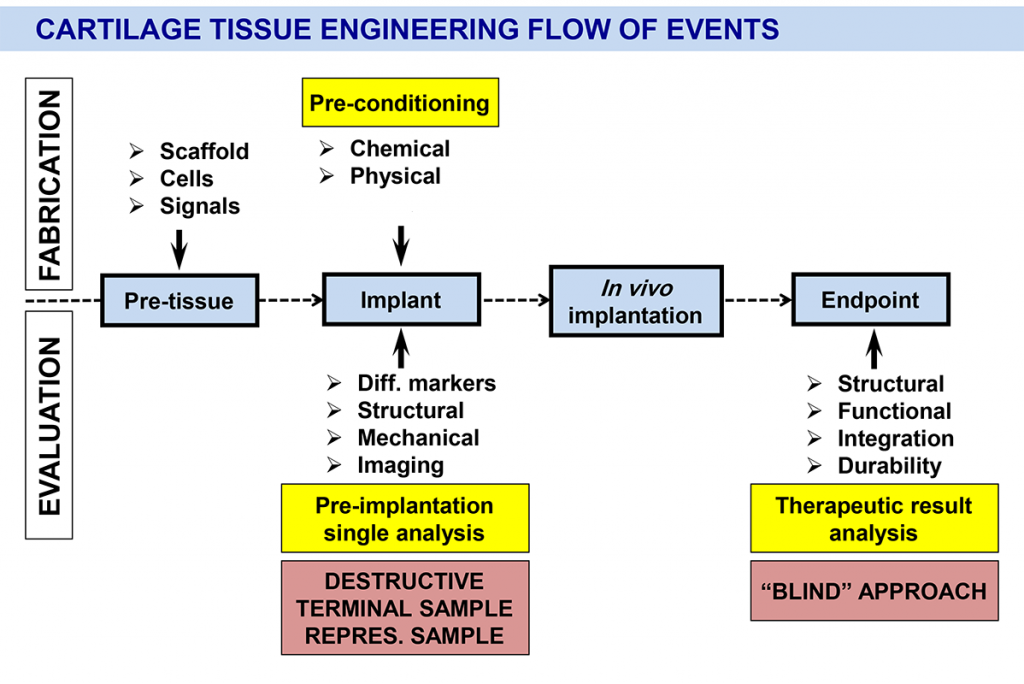
The following areas will be emphasized:
- Imaging, cell biology, mechanics, biophysics and biomolecular transport characterization, each embodied in one TR&D project,
- Non-contact, non-destructive longitudinal testing,
- Exhaustive destructive testing for validation purposes, including histology and PG/collagen chemistries.
There are four principal research groups under the umbrella of the Center, each focussing on a Technology Research and Development project
- To develop imaging modalities to longitudinally track the state of cartilage tissue differentiation, including while developing in a bioreactor. Development of an miRNA-based imaging system to monitor the development and maintenance of engineered cartilage is a major goal.
- To develop non-invasive methods to analyze two key aspects of growing implants for Cartilage Tissue Engineering. First, a tool to directly monitor cell differentiation based on modified MSCs as targeted probes; and second, a tool to predict the ECM composition and structure based on the normal matrix remodeling present during tissue growth.
- To develop a bioreactor system that can generate and maintain profiles of multiple biomolecules including auto/paracrine factors synthesized by cells. Proteomic (output stream and construct) and genomic (construct) analyses are used to quantify the effect of exposure. Analysis and validation strategies enable the optimization of conditions for chondrogenesis and to quantitatively relate input/output profiles of biomolecules to the biomolecular footprint of MSC chondrogenesis.
- To develop new methods for imaging-guided multiscale and multimodal mechanical evaluation of TE cartilage. These methods will complement the macroscopic assessment capabilities currently available in our laboratories, and create a versatile multiscale tissue evaluation resource for unique non-destructive and destructive tissue properties, failure analysis and functional evaluation.
